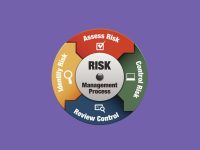“Just GO for it. Try something NEW.”
But the moment you do, the questions begin:
“So… how long have you been doing this?”
That’s the paradox. You’re encouraged to explore but expected to already be an EXPERT when you arrive. Whether it’s entering a new business field, exploring a global market, or launching a product in a completely different sector, you’re often met with the same silent message:
“Come back when you’re already polished.”
We say we value learning, but too often, we criticise people for not knowing everything on day one.
Why do people expect expertise so early?
Part of it’s psychological, as we’re wired to trust what is familiar and proven. In business, that often means we overvalue titles, years of experience, or past success. In today’s fast-paced environment, people usually feel that there’s no time for uncertainty. They want answers, not learning curves.
So, when someone enters with curiosity instead of confidence, we assume they’re not ready, even if they have the potential to do amazing things.
The culture of “Already knowing”
We live in an era of fast information. If you can search for something in 3 seconds, people assume you should already know it. This mindset creates pressure, especially in global business fields where experience can’t be DOWNLOADED.
Add to that the world of social media and personal branding. Everyone appears confident and “positioned.” So, if you’re just starting or openly saying, “I’m LEARNING”, it can feel like you’re falling behind.
But let’s pause for a second.
Because what we’re experiencing is not just social pressure, it’s a PARADOX in how the brain and society deal with knowledge.
Why does this push people away?
I’ve seen bright, creative people get discouraged because they couldn’t answer everything in a pitch meeting. They were new, but they were willing to learn. Still, they were told to “come back when they’re more experienced.”
We risk losing ideas, partnerships and future leaders this way. And we limit industries by reinforcing sameness.
Because real innovation doesn’t come from knowing the OLD WAYS. It often comes from someone who asks: “Why are we doing it this way?”
How did I enter the world of international trade?
When I entered international trade, I wasn’t a stranger to business; I had years of experience in category management and retail, managing numbers, trends and buyers. But the international side of the trade was something new.
I didn’t come from a background in customs, shipping, or global logistics. I didn’t grow up speaking the language of certificates, duties, or incoterms. And every country has its own story, its own pace, rules and customer mindset.
So yes, entering this new world meant facing unknowns.
It meant asking questions.
It meant making mistakes.
And honestly, I felt pressure to act like I had it all figured out.
But I chose a different path.
I stayed transparent.
I asked questions others assumed
I already knew the answers to.
I did the deep research.
But I also allowed myself to say, “I don’t know yet.”
Over time, that honesty became my strength.
Because I wasn’t just trading goods, I was building trust.
And trust, especially in international trade, goes further than any title.
We can talk a lot about expertise. But sometimes, the most valuable thing in business isn’t having all the answers. It’s having the mindset to say:
“I don’t know yet. But I’m here. And I’m learning.”
It’s how real progress begins.
















